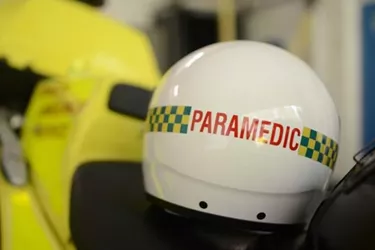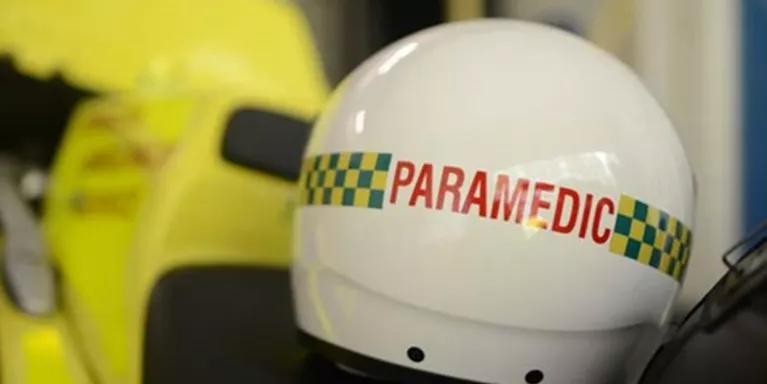Stuart's story
Police sergeant Stuart shares his experience of post-traumatic stress disorder (PTSD). He wants other people going through something similar to know that they are not alone.
I'm currently a sergeant, and I've been in the police service for 22 and a half years. I joined the police force because I wanted to try to help people. I like making a positive difference in people's lives.
However, the job can be challenging. There is increasing demand, together with a reduction in staff. This makes it difficult and frustrating to give the time and support to more people.
I was aware something wasn't right very soon after a traumatic incident in 2012, in which two of my colleagues were killed. I kept thinking that things would calm down and get better, but they didn't. They got worse.
The first thing I noticed was the lack of sleep, wanting to sleep at irregular hours, and the nightmares.
These involved death (sometimes my own), losing people on my team and reliving the scene over and over again. This resulted in a reluctance to go to sleep.
I lost my appetite, suffered extreme mood swings, experienced flashbacks, and felt nervous and anxious all the time. I was also very tearful. I gradually withdrew from life by staying in all the time, not replying to friends. During extreme times, I would close all the curtains in the house and not answer the door or phones.
I was worried about whether people would believe me, and also about the stigma around mental health. But the help I received was excellent.
I went through days and sometimes weeks where I had no regard for my own life and wasn't bothered if I lived or died, and wondered if anyone would be bothered if I was dead. I had a very distorted view on life, and the value and importance of life.
I felt guilt over the incident as I questioned whether I'd missed anything on the day that could have prevented the incident, or whether I could have done anything if I'd been there. I felt responsible, because on that day, two of my team didn't go home.
I also felt a lot of anger towards myself for feeling these things, and having no control over them. I kept thinking, "what gave me the right to feel like this?" I was still here, so why was I feeling like this?
It wasn't until about four years later that I suffered a breakdown and realised I wasn't over the incident and I wasn't getting any better.
I then self-referred to the force occupational health unit. Although my supervision could have done this on my behalf, it was important for me to acknowledge I needed help – very difficult, and a very big step!
I know that what I'm experiencing is normal and that I'm not alone. And I know that there are people there to support and help.
I felt slightly embarrassed about talking about what I was experiencing, and about the fact that it was happening in the first place. I was worried about whether people would believe me, and also about the stigma around mental health. But the help I received was excellent, both from the welfare support officer and the cognitive behavioural therapy (CBT) therapist. I also received support from my divisional team (and still do).
I still think about the incident every day and experience some of the things I've described. However, I know that what I'm experiencing is normal and that I'm not alone. And I know that there are people there to support and help.
It doesn't matter who you are or how strong a character you are – this can happen to anyone at any time.
If you're experiencing post-traumatic stress disorder (PTSD), know that you're not alone, despite you thinking you are. There are people out there who can help you, and who want to help you. Don't let any stigma, or thoughts of being weak or selfish get in the way of getting support.
It doesn't matter who you are or how strong a character you are – this can happen to anyone at any time. Be honest with yourself.
If you're a colleague or family member of someone experiencing PTSD, advise them to get help, but don't try to force them. Listen to them and let them know you are there. Sometimes they may not want to discuss anything about the incident or their experiences, but just knowing that people are there for them is enough.


Information and support
When you’re living with a mental health problem, or supporting someone who is, having access to the right information - about a condition, treatment options, or practical issues - is vital. Visit our information pages to find out more.
Share your story with others
Blogs and stories can show that people with mental health problems are cared about, understood and listened to. We can use it to challenge the status quo and change attitudes.













